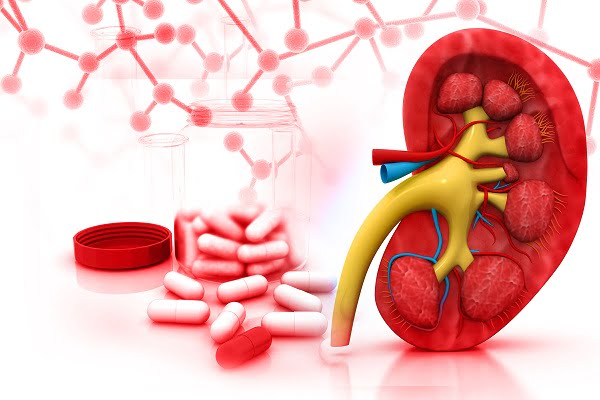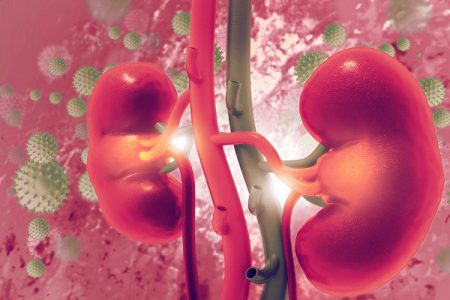Stage 4 Kidney Cancer: Metastasis, Survival Rates, Treatment
- Updated on: Jul 29, 2024
- 3 min Read
- Published on Apr 20, 2021

What is stage 4 kidney cancer or renal cancer or renal cell carcinoma?
Stage IV renal cell cancer (RCC) is the cancer of kidney that has spread to distant locations (tissues or organs) in the body, and invaded into the local structures, or has spread to more than one lymph node.
Stage IV kidney cancer is also known as metastatic kidney cancer or metastatic renal cell carcinoma.
RCC generally begins as a small tumor growing in one of the kidneys. It can also develop in both kidneys.
How does stage 4 kidney cancer spread?
When a cancerous tumor is discovered in a kidney, your doctor provides the usual treatment. This involves removal of a part or the entire kidney surgically. Read about removal of kidney for cancer treatment.
If the tumor is left, there are high chances that the cancer will grow again and spread to the lymph nodes and/or other nearby or distant organs.
This spread of cancer to the distant locations is called metastasis. As for RCC, the tumor can spread to a large vein out of the kidney. It can also invade into the lymph nodes and other organs. Generally, lungs are particularly affected by the kidney cancer.
Stage 4 kidney cancer life expectancy: What’s the Outlook?
According to the American Cancer Society, following are five-year survival rates for different stages of kidney cancer:
stage 1: 81 percent
stage 2: 74 percent
stage 3: 53 percent
stage 4: 8 percent
How long can you live with stage 4 kidney cancer?
There is no exact answer to this question, though most people with cancer are interested in knowing about it. The survival rates such as five year survival rates as mentioned above are based on a large set of population.
This can give an about how likely it is for a person to live after the diagnosis of kidney cancer in a particular stage. But these numbers do not predict exact survival for an individual person.
You should talk to your doctor to know better about survival in an individual case. It depends on your condition, the treatment you are going through, your overall health, and to what extent and to which organs the cancer has spread to.
Stage 4 kidney cancer symptoms: What are the first signs of stage 4 kidney cancer?
A common symptom of stage 4 renal cancer is bloody urine (hematuria). The urine may appear red, pink, or brown.
Another symptom of stage 4 kidney cancer may be regular pain in the lower back, below the ribs.
The stage 4 kidney cancer can cause a lump in your abdomen. Sometimes, you can feel it from the outside.
Other symptoms of stage 4 kidney cancer may include such as:
- weight loss
- fever
- fatigue and being tired all the time
Is stage 4 kidney cancer terminal? Can you cure stage 4 kidney cancer?
There is no cure for end-stage kidney cancer that has grown to distant organs such as lungs, brain, and lymph nodes etc.
Your healthcare provider can however provide treatment that can relieve the symptoms and help you feel better. Many treatment options are available and these depend on your actual condition.
What Are the Treatment Options for stage 4 kidney cancer?
The type of treatment your doctor delivers mainly depends on the stage of your cancer. In stage 4, the cancer has already advanced to distant sites. Surgery is generally not an option in this stage.
Surgery is possible in cases where the tumor and metastasis can be differentiated so that the cancerous cells are successfully removed by isolation.
If the cancer has spread to the lungs, lung removal partially may help remove the cancer.
But, your doctor will also consider your overall health condition to determine whether it is possible and safe for you to go through a major surgery such as partial lung removal.
If surgery isn’t an option to treat stage 4 kidney cancer, other options may be considered. These may include such as:
- embolization: it is the blocking of blood flow to the cancer cells
- radiation therapy: it uses high-energy radiation beams to target cancer cells. But, it’s not usually successful when the cancer has spread to several locations.
It is important that you follow your doctor’s advice. Attend to the appointments regularly and on time, and take your medications. Follow the lifestyle changes your doctor advises













1 Comment
Your point of view caught my eye and was very interesting. Thanks. I have a question for you.